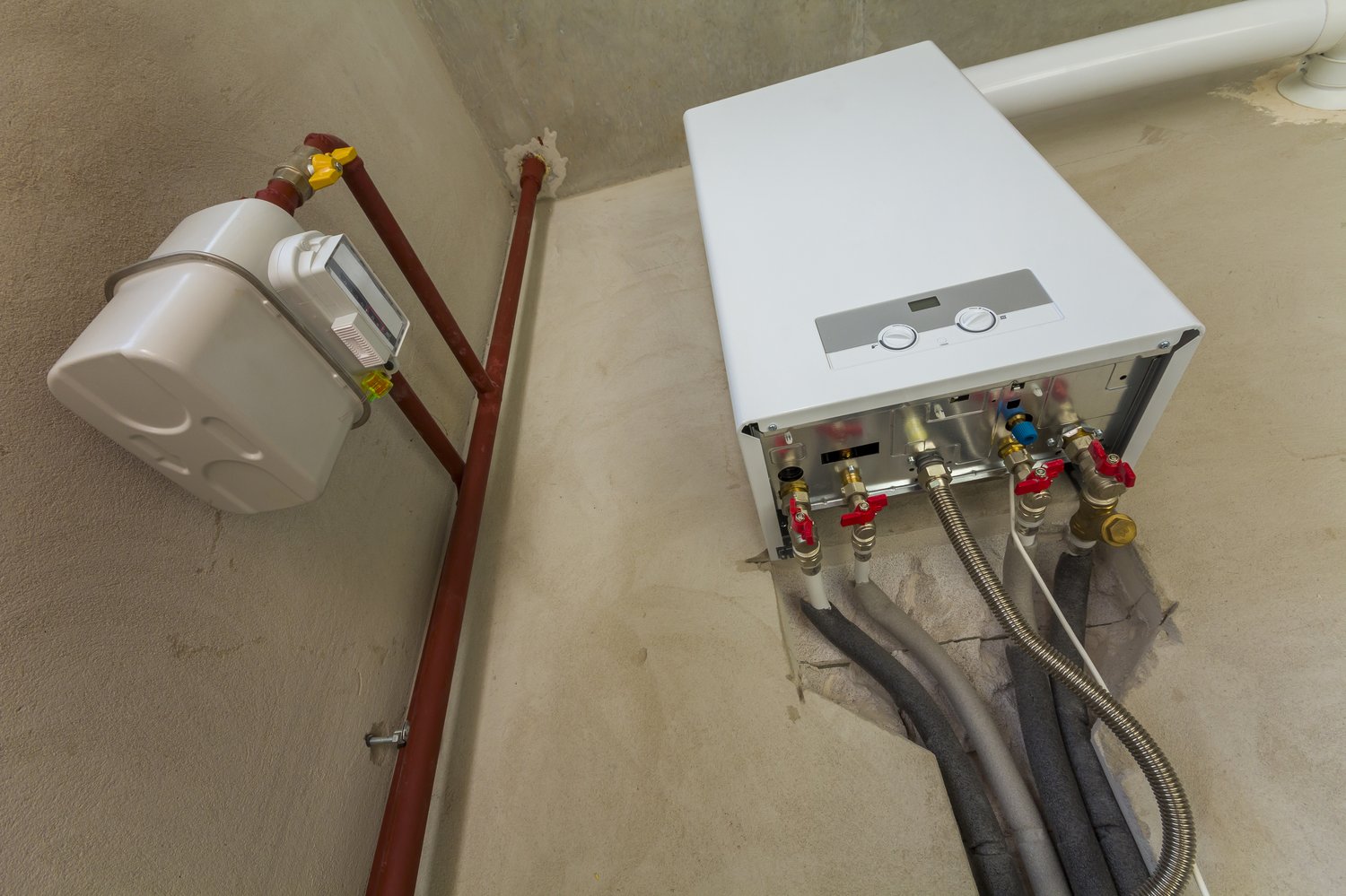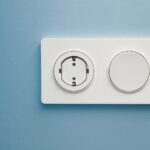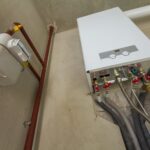Imagine stepping into your shower, only to be met with an icy dribble instead of a comforting warm stream. If your electric tankless water heater has suddenly stopped heating, worry no more. Understanding and addressing the common causes behind this issue can save you time, money, and frustration.
- Identify electrical faults such as circuit breaker problems and wiring defects that might be interrupting your heater’s function.
- Adjust flow rate and temperature settings to ensure they aren’t inadvertently affecting the heater’s performance.
- Discover the importance of regular maintenance, like system flushes and inspections, to prevent future heating issues.
- Learn when it’s best to call a professional electrician to tackle more complex problems safely.
By the end of this guide, you’ll be equipped with the knowledge needed to diagnose and potentially fix your water heater issues, ensuring a reliable hot water supply for your everyday comfort.
Why Won’t My Electric Tankless Water Heater Heat: Troubleshooting Flow Rate and Temperature Settings
Ensuring your electric tankless water heater operates efficiently often hinges on proper flow rate and temperature settings. Any discrepancies in these parameters can significantly impact the heater’s performance. Here, we delve into the intricacies of flow rate and temperature settings, providing a step-by-step guide to troubleshoot common problems.
A frequent issue with tankless water heaters is insufficient hot water flow, often caused by low water pressure. This can result in the heater failing to activate. Check your mains water supply and ensure that the inlet filter is free from debris, which might impede water flow.
Temperature settings play a vital role in achieving the desired water temperature. It’s important to verify that your heater’s digital control panel is set to the correct temperature. If you’re experiencing water that’s too cold or too hot, re-calibrating the temperature settings might resolve this problem.
If these adjustments do not rectify the issue, consider testing the flow sensor for defects, as it determines when the heater should activate. Clean or replace the sensor if necessary. By ensuring these elements are correctly configured, you can restore your heater’s optimal functionality.
Maintaining Your Electric Tankless Water Heater: Prevention is Better than Repair
Regular maintenance is crucial to avoid those unexpected cold showers. A well-maintained electric tankless water heater not only performs efficiently but also extends its lifespan.
Start with routine cleaning of the water filter and inspecting the heater’s components for visible wear. Accumulated sediment can reduce efficiency, so a periodic system flush is recommended to prevent blockages and mineral build-up, especially in areas with hard water.
A visual inspection of electrical connections and components at least once a year can help identify potential issues before they escalate, ensuring your heater remains reliable.
By adopting these proactive maintenance measures, you safeguard against unexpected repairs and ensure consistent access to hot water. Prioritizing prevention not only saves you from costly repairs but also contributes to sustainable energy efficiency.
When to Call a Professional Electrician for Tankless Water Heater Repairs
Understanding when to engage a certified electrician is crucial for maintaining your electric tankless water heater’s efficiency and safety. While many minor issues can be handled with basic troubleshooting, certain situations necessitate professional intervention.
Complex Electrical Issues: If you encounter complex electrical faults such as significant wiring problems, power supply disruptions, or persistent tripping of the circuit breaker, it’s advisable to seek professional assistance. Electricians have the expertise to handle these intricate issues and ensure the safety of your home’s electrical system.
Component Failures: Recognizing signs of component failures, like faulty heating elements or damaged thermostats, is essential. Replacing or repairing these components demands specific skills and knowledge, which a certified electrician possesses.
Safety Standards: Adhering to electrical safety standards is non-negotiable when dealing with tankless water heaters. An experienced electrician will ensure your installation complies with local regulations, minimizing risks of accidents.
Warranty Concerns: Attempting DIY repairs on your water heater may void manufacturer warranties. Hiring an electrician for needed repairs not only protects your investment but also guarantees that the work is performed to industry standards.
Engaging a skilled electrician not only resolves immediate issues but also helps in identifying potential problems before they escalate, ensuring the long-term reliability and efficiency of your tankless water heater system.
Understanding Why Won’t My Electric Tankless Water Heater Heat: Common Causes and How to Identify Them
When your electric tankless water heater stops producing hot water, it can be a bewildering experience. Understanding the common causes of this issue can streamline the diagnostic process and get you back to enjoying a steady supply of hot water.
Several factors could be responsible for this lack of heating. Electrical faults within the system are a primary suspect, given the reliance of these units on a stable power supply. Component failures, such as malfunctioning heating elements or thermostats, can also disrupt the heater’s functionality. Additionally, the initial installation could play a central role, especially if conducted improperly.
To effectively diagnose why your electric tankless water heater isn’t heating, start with a systematic approach. Begin by checking the electrical panel for any tripped circuit breakers, then inspect visible wiring for wear or damage. If these initial steps don’t reveal the culprit, consider checking the manufacturer’s manual for further troubleshooting steps, as it can offer specific guidance tailored to your model.
By identifying the root cause of the problem, you can take the appropriate steps to rectify it, whether that involves a simple reset, a component replacement, or professional assistance.
Electrical Faults in Tankless Water Heaters
Electrical issues often top the list of reasons why an electric tankless water heater might not heat properly. The circuit breaker is often the first point of investigation because a tripped breaker can instantly cut off the power supply, rendering the unit inoperative.
Wiring defects also pose a significant threat, potentially leading to overheating or short-circuiting. Inspecting the connections and ensuring there are no frayed wires is crucial for maintaining a safe and efficient water heater operation.
The power supply itself must be consistent and within the specifications provided by the manufacturer. A diminished or interrupted power supply can severely affect the heater’s ability to function as it should.
Proactively checking these electrical components not only helps in diagnosing current issues but also plays a role in the preventative maintenance that keeps your system running efficiently.
Frequently Asked Questions on Electric Tankless Water Heater Issues
What should I do if my electric tankless water heater is not heating water?
Check the power supply and circuit breakers, ensure the unit is receiving power, and verify the temperature setting is correct.
Why is my water lukewarm instead of hot?
This could be due to incorrect temperature settings or a malfunctioning heating element. Check and adjust settings, or inspect components.
How often should I maintain my electric tankless water heater?
Routine maintenance, including cleaning and flushing the system, should be done annually to ensure optimal performance.
Can I repair my electric tankless water heater myself?
Basic troubleshooting can be done by homeowners, but complex electrical issues should be handled by a certified electrician for safety.
What are common signs of electric faults in tankless water heaters?
Signs include frequent tripped circuit breakers, buzzing sounds, or inconsistent water temperature.





